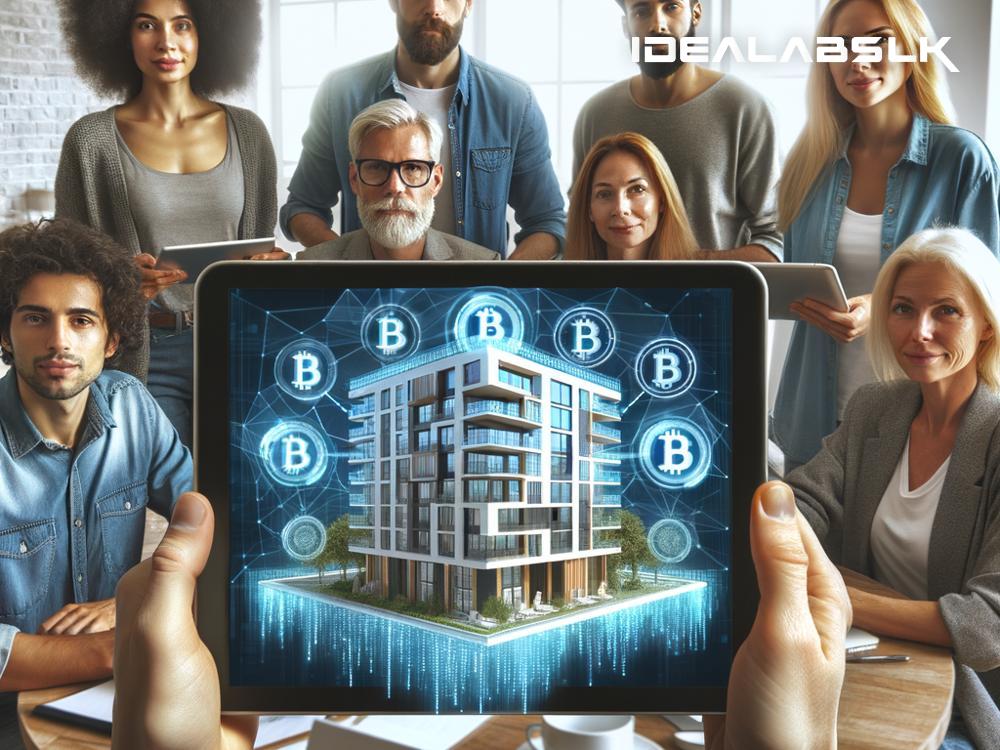Blockchain for Real Estate: Transforming Ownership One Block at a Time
In the vast world of real estate, the winds of change are blowing, powered by an innovative technology called blockchain. Most commonly known for its role in cryptocurrencies like Bitcoin, blockchain is now paving a new path for fractional ownership in the property market. But what does this actually mean, and how does it work? Let's break it down into simpler terms.
Understanding Blockchain
At its core, blockchain is like a digital ledger or record book that is accessible across a network of computers. Imagine a notebook that everyone can write in, but no one can erase or alter what has been written. This feature ensures transparency and security, making blockchain a trustworthy technology for various applications, including real estate transactions.
The Traditional Real Estate Market
Traditionally, buying a property has been a straightforward yet hefty investment. You either have the funds to purchase a property outright, or you opt for financing options like loans or mortgages. This has often limited property ownership to those with significant financial resources. Moreover, the buying process involves numerous intermediaries such as real estate agents, legal services, and banks, each adding their layer of complexity and costs.
Enter, Fractional Ownership
Here's where blockchain introduces a game-changer: fractional ownership. This concept allows multiple investors to own a share of a property, making real estate investment more accessible to the average person. Instead of needing a large sum of money to buy a whole property, individuals can now own a part of it, akin to owning shares in a company.
But you might wonder, how does blockchain make fractional ownership seamless and secure?
Blockchain's Role in Fractional Ownership
-
Tokenization: Through blockchain, properties can be tokenized, which means converting the property's value into digital tokens. Each token represents a share of the property, and these tokens can be easily bought and sold on blockchain platforms, making the investment process smoother and faster.
-
Transparency and Security: Since blockchain is essentially a distributed ledger, all transactions are recorded and easily verifiable by anyone in the network. This transparency reduces the risk of fraud and errors. Moreover, the immutability (unchangeableness) of blockchain ensures that once a transaction is recorded, it cannot be tampered with, which enhances the security of property investments.
-
Smart Contracts: These are self-executing contracts with the terms of the agreement directly written into lines of code. In the realm of fractional ownership, smart contracts automatically enforce and execute the terms of property transactions, such as distributing rental income among owners based on their share of ownership. This reduces the need for intermediaries, cutting down on transaction times and costs.
Impacts on the Real Estate Market
-
Democratization of Property Investment: By enabling fractional ownership, blockchain is democratizing real estate investment, making it accessible to a broader audience. This could potentially increase investment in the real estate sector, empowering more people to build wealth through property investment.
-
Increased Liquidity: Traditionally, real estate is considered an illiquid asset since it takes time to sell. However, blockchain facilitates quicker buying and selling of shares in properties, increasing the market's liquidity.
-
Reduced Costs and Complexity: By streamlining transactions and reducing the need for intermediaries, blockchain can significantly lower the costs and complexity of real estate transactions. This makes the process more efficient and less daunting for investors.
The Road Ahead
While the integration of blockchain in real estate, particularly for enabling fractional ownership, presents exciting opportunities, it is not without challenges. These include regulatory hurdles, the need for technological infrastructure, and market acceptance. However, as technology evolves and awareness grows, we are likely to witness a transformative shift in how we invest in and own real estate.
In conclusion, blockchain for real estate is not just a futuristic concept but a current reality that is reshaping the property market. By enabling fractional ownership, blockchain technology opens the door to exciting possibilities, transforming property investment from a privilege of the few to an opportunity for many. As we move forward, the promise of a more inclusive, transparent, and efficient real estate market becomes increasingly tangible, one block at a time.

